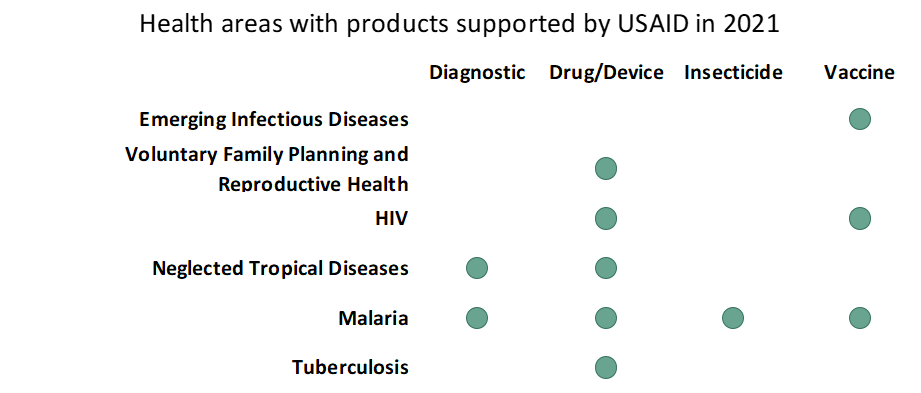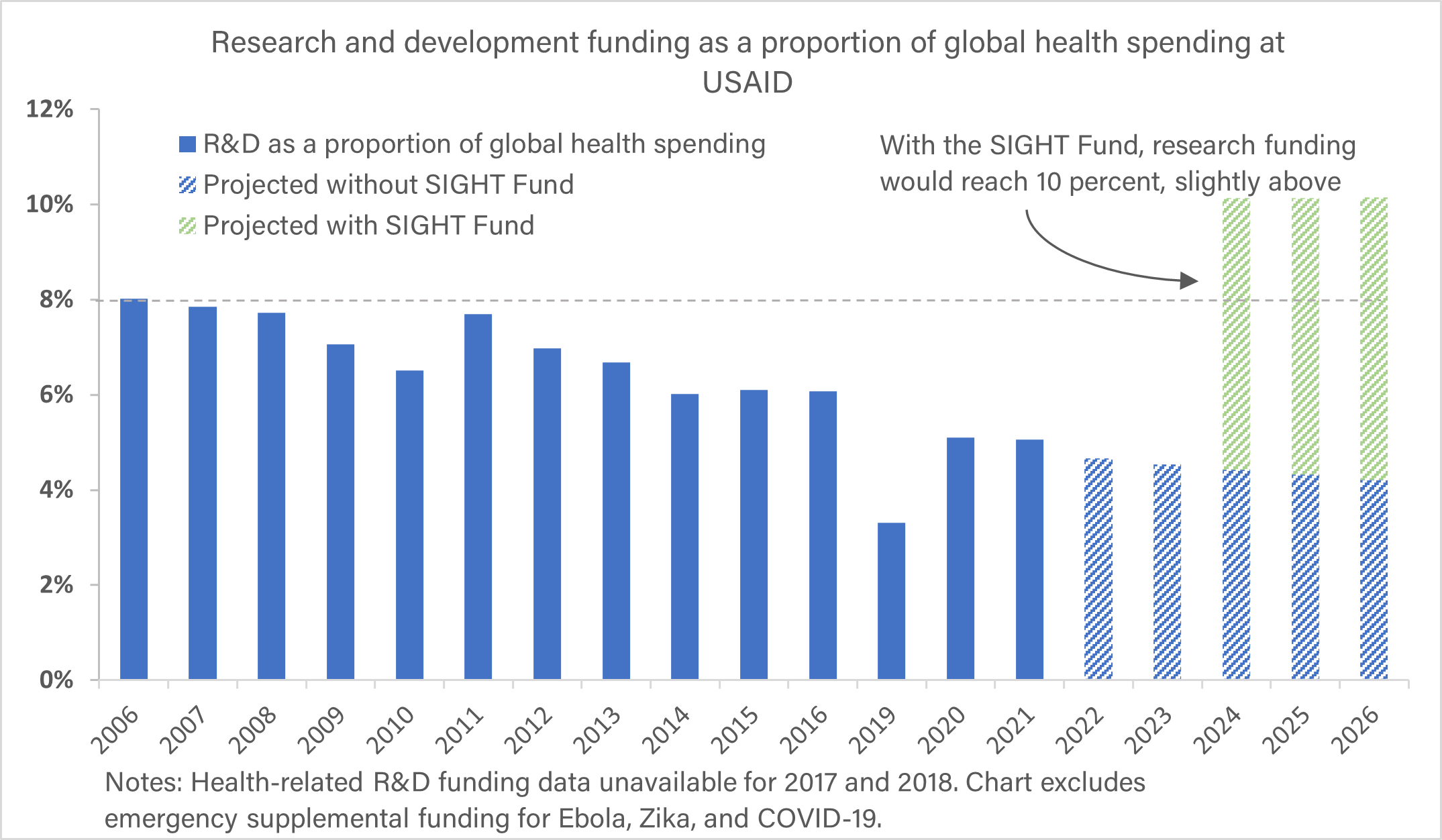The US Agency for International Development (USAID) released a new report on its global health research and development (R&D) programs for fiscal year 2022 that includes unprecedented insight into the product development programs the agency supported—and highlights the need for additional, dedicated resources for global health research.
Why it matters: The report gives insight into an agency that is a key sponsor of global health product development.
- Due to a lack of commercial incentive for industry investment, most global health research is supported by public funders, most notably the US government.
- Several US agencies support global health research, but USAID is the only agency with a mandate to improve global health and development. The agency excels at pushing products through the end of the research pipeline and advancing tools to suit the needs of people in low-resource settings.
What’s new: This report includes an unprecedented 13-page appendix detailing USAID’s individual product-level investments. By our count, USAID supported at least 59 products in 2021 covering multiple health areas and product types.

By the numbers: In 2021, USAID spent US$165 million in baseline funding and $50 million in COVID-19 supplemental funding on health product development and research to assess the best way to implement new products and practices.
- Research spending from baseline funds increased slightly over the prior year (+$4 million) — but continued to decline as a proportion of total global health spending.
- In 2021, proportionate spending on research dropped slightly to 5.1 percent, continuing a years-long pattern. If the trend continues, GHTC estimates that proportionate spending on R&D will drop to 4.2 percent by 2026 unless Congress passes a policy like the Supporting Innovative Global Health Technologies (SIGHT) Fund to direct more dedicated funding to R&D.

Our take: GHTC applauds the release of the report and the additional detail provided by USAID. We call policymakers’ attention to the continued need for additional, dedicated resources for global health research at USAID that this report exposes.


